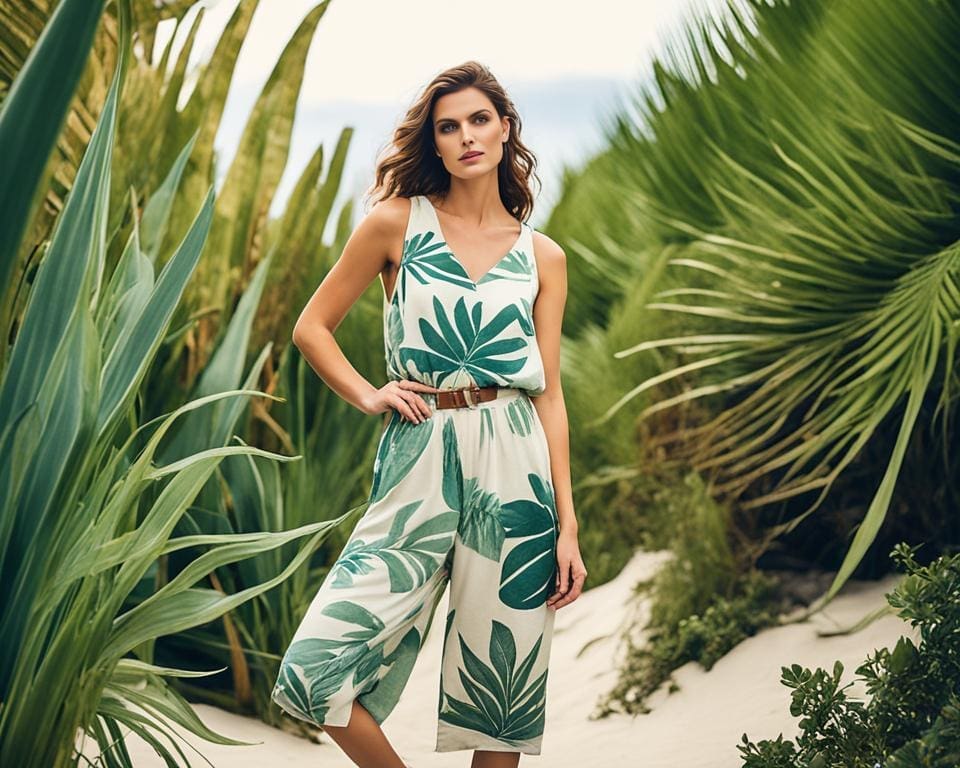The fashion scene is at a crucial point. A shift towards sustainable fashion from a mere trend to a key business need is happening. A study by Statista shows that 35% of U.S. shoppers are ready to pay more for eco-friendly clothes. This shows a rising awareness and need for sustainable fashion. Brands are now pushed to choose ethical options. These should consider the whole lifecycle of products, from how they are made and sold to their use and disposal.
Global waste is predicted to hit 3.4 billion tons by 2050. Fashion plays a big part in this environmental issue. Brands like Zara and H&M release many collections a year, feeding a culture that ignores sustainability. Also, cheap fashion from sites like Shein worsens the situation by causing more consumption and waste.
Youths, especially Gen-Z, are thinking more about the impact of their buys. They see the importance of making sustainable fashion choices. Brands must now follow ethical practices and use green materials to meet these new standards. The decisions we make today will greatly affect the future of fashion and our planet.
Understanding Sustainable Fashion
Sustainable fashion marks a big change in how we buy and make clothes. It’s not just about being green. It looks at the whole fashion world, focusing on making things ethically and supporting fairness. This idea is key to tackling issues like harming nature and unfair work in the fashion field.
Definition and Key Concepts
Sustainable fashion aims to lessen its impact on the environment and treat workers well. It’s built on important ideas:
- Ethical production: Making sure workers have good conditions and are treated right.
- Eco-conscious materials: Using things like organic cotton, hemp, and recycled stuff.
- Circular fashion: Encouraging reuse and recycling to cut down on waste.
- Slow fashion: Valuing long-lasting quality over quick, throwaway trends.
The push for these ideas is growing, especially among young people. They want to buy from brands that are open and responsible. This isn’t just about making a choice; it’s about starting a big change in the industry.
Impact of Fast Fashion
Fast fashion, with brands like Zara and H&M, goes against eco-friendly ways, leading to waste. This approach means:
- Quickly making clothes, putting cost before the environment.
- Creating lots of waste, with clothes often thrown away.
- Using too much water, which adds to pollution.
Fast fashion is a real problem for the planet, causing loads of carbon emissions. It makes the fashion world a top polluter. There’s a growing need for better choices. Shoppers play a key part in this by choosing brands that are kinder to the planet. Picking greener options helps the earth and promotes fairness in fashion.

The Importance of Sustainable Fashion Choices
Sustainable fashion is crucial due to environmental issues. The fashion sector greatly adds to problems like pollution and waste. By understanding the perks of eco-friendly fashion, both shoppers and companies can start to make a difference.
Environmental Benefits
Chloé is a brand leading the way with its green initiatives. They are proud holders of B Corp certification, committing to less harmful textiles. Sustainable brands often adopt recycling and aim to reduce waste. Considering fast fashion creates 92 million tons of waste annually, it’s clear we need to change. People are realising that their buying decisions can help lower this huge waste amount.
Social Responsibility
Social responsibility in fashion means more than just ethical making. It includes ensuring fair wages and safety in the workplace, particularly for women of colour in the garment industry. The fashion world can sometimes make people feel bad about themselves to sell more. But, new, mindful brands are changing the story. They aim to lift sustainability and help young women feel confident in their unique fashion sense while being mindful of ethics.
This approach is reshaping the industry to better the planet and communities impacted by traditional fashion production. As more consumers ask for eco-friendly options, brands are encouraged to be more ethical. This helps create a fairer business world and opens new opportunities. For example, in Africa, some are turning textile waste into community benefits.
Sustainable Fashion Trends and Practices
Eco-friendly fashion is becoming more popular every day. People now prefer brands that are ethical and support fair trade. The sustainable fashion rental market is growing fast, with companies like Rent the Runway and By Rotation leading. They offer stylish options that help cut down on waste.
Recycling and upcycling are key to circular fashion. This approach makes the most of materials. Shockingly, 300,000 tonnes of clothes are thrown away every year. We need better, sustainable textiles. The 30 Wears Challenge encourages us to think about how long our clothes last. This helps build a culture of caring for our planet.
Choosing quality over quantity helps lower our carbon footprint. Go for timeless items, like classic jeans and versatile coats, for a sustainable closet. Adopting a one-in, one-out rule and learning to fix clothes are good strategies. Knowing more about sustainable fashion helps us make choices that match our values and support eco-friendly trends.








